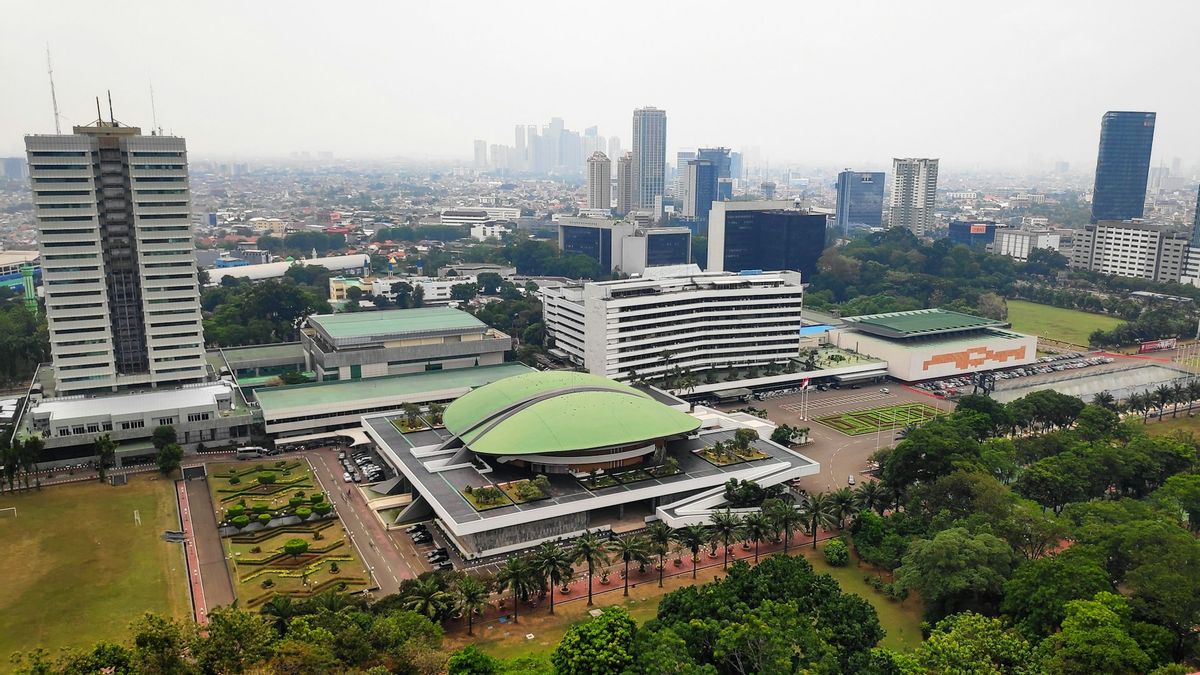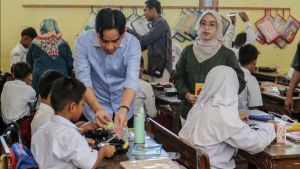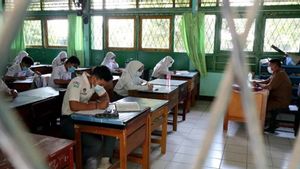JAKARTA - The DPR criticized the rules for providing contraceptives for students and adolescents that had just been issued by the Government. Commission IX of the DPR asked the Government to review the regulation.
The rules regarding the provision of contraceptives for students and adolescents are contained in Government Regulation (PP) Number 28 of 2024 concerning Health where the contents of the regulation are related to the reproductive system's efforts according to the cycle. It is feared that this rule will have a long-term health impact, as well as have the potential to get teenagers into promiscuity.
"Be careful, if the failure of supervision becomes a poison that destroys children! The government must ensure that this policy is balanced with holistic sexual education and a approach that is sensitive to the values of the community because it could become a boomerang for young Indonesians," said Member of Commission IX DPR Arzeti Bilbina, Tuesday 6 August.
Arzeti explained that the concern over PP number 28 is very basic because Article 103 which regulates contraceptives is not written in detail regarding students who are given education, so they are prone to misinterpretation.
"I think there needs to be a clear explanation and education, because the current article can misinterpret," he said.
Article 101 Paragraph (1) PP 28/2024 stipulates that reproductive system efforts according to the life cycle include the health of the infant, toddler, and preschool reductive system; health of the school and adolescent age reproductive system; health of the adult reproductive system; health of the bride-to-be reproductive system; and health of the elderly reproductive system.
In particular, the rules regarding the Health Efforts of the school-age reproductive system and adolescents are regulated in Article 103. Interestingly, Article 103 Paragraph (4) states that health services for reproductive school-age and adolescents include the provision of contraceptives.
The sound of the rule is as follows: The reproductive health service as referred to in Paragraph (1) at least includes: a. early detection of disease or screening, b. treatment, c. rehabilitation, d. counseling, i. the provision of contraceptives'.
Arzeti also considered that the regulation was not in line with the norms in Indonesia. Especially for teenagers who should not have sex because it will affect their health.
"Don't let this rule become the basis for young people to have sex outside of marriage. Apart from being normally prohibited, the health impact is also very influential," explained Arzeti.
The National Innovation Research Agency conducted research on Youth and Health Reproduction where the study found that there were health impacts that would be received by teenagers if they had sexual intercourse at an early age. The health impacts include bleeding, postpartum, and mental disorders such as depression.
Data from WHO in 2021 also shows that adolescents who have sexual intercourse at an early age face a higher risk of complications and death due to pregnancy. The use of contraceptives, according to Arzeti, also does not guarantee prevention of pregnancy and various diseases.
"Seeing the health impact that will be received by teenagers, the government should be able to consider the impact of the regulations issued. Are there more positive impacts than the negatives?" said the legislator from the East Java I electoral district.
Furthermore, Arzeti assessed that the problem of reproductive health is an additional issue that may occur due to the implementation of the regulation. Because the rules and provision of contraceptives alone are not enough to overcome the challenges of adolescent reproductive health, but many other factors need to be done.
"To ensure the effectiveness of this policy, there must be a holistic and comprehensive approach that includes quality sexual education, counseling, and emotional support," said Arzeti.
This member of Commission IX of the House of Representatives in charge of health affairs also reminded that teenagers do not have good emotional stability, so it is necessary to provide assistance and education regarding contraceptives. Arzeti is worried that access to contraceptives for school-age children and adolescents can be misused.
SEE ALSO:
"Not to mention the social impact that will occur. Parents of children will also find it difficult to accept this policy because it seems as if legalizing sexual relations for teenagers," he said.
Based on data from the Indonesia National Adolescent Mental Health Survey (I-NAMHS) in 2024, 17.95 million Indonesian teenagers were diagnosed with mental disorders. This is considered to be a consideration when making a rule.
"There is a possibility that the contraceptives provided are not used in accordance with the intended or misused goals of individuals who are not emotionally mature enough to manage these responsibilities," said Arzeti.
In the end, other health impacts will also arise, especially in terms of psychological children. They can be traumatized, depressed, and experience other mental disorders," he continued.
Once again Arzeti emphasized to the Government to immediately provide a detailed and comprehensive explanation to the public regarding the regulation. Do not cause unrest in the community because the government seems to invite premature sex behavior.
"We hope that the Government can explain what these rules mean. How big the benefits are, which must be shown through in-depth research. Do not let it become like justifying premature sex," concluded Arzeti.
The English, Chinese, Japanese, Arabic, and French versions are automatically generated by the AI. So there may still be inaccuracies in translating, please always see Indonesian as our main language. (system supported by DigitalSiber.id)












